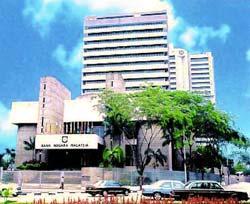
 Trade regulations
Trade regulations
Exchange Regulations

The Bank Negara Malaysia or the Central Bank administers foreign exchange control regulations with a liberal and uniformed transactions with all countries, with the exception of Israel, Serbia and Montenegro; special restrictive rules apply to transactions with these countries.
Export proceeds are required to be repatriated in accordance with the prescribed manner and the payment schedule as specified in the sales contract, which currently is limited to six months from the date of export. The export proceeds in foreign currency other than the restricted currencies repatriated must either be sold for Ringgit or retained in a foreign currency account, subject to overnight limits of between US$1 million and US$10 million.
Exporters are required to complete Form KPW X for each shipment exceeding RM100,000 f.o.b and submit quarterly statements to certify the receipt of all export proceeds. However, exporters who declare their export through EDI (Electronic Data Interchange) system are not required to submit Form KPW X, with effect from 1 January 1997.
Credit and Payment Conditions
Usual terms: Exporters should review their terms for sale, especially with respect to firms dependent on domestic demand. Minimum terms are sight drafts, with letters of credit being the recommended terms. Credit terms of 60 to 90 days often provided.
Customs Tariff

The Malaysian tariff nomenclature is in accordance with the International Convention on the Harmonized Commodity Description and Coding System (HS) and the Standard International Trade Classification (SITC).
These tariff schedules apply to all items, with the exception of certain goods, mainly petroleum products and live animals.
The exception also extends to goods either manufactured locally or abroad that are transported between Peninsular Malaysia, Sabah and Sarawak.
Most goods are subjected to import duties ranging from zero to 30 percent. Higher rates apply to luxury goods, automobiles, tobacco, alcoholic beverages and processed and high-value food products.
Duties
Malaysia adopted the World Trade Organisation’s (WTO) procedures for valuing imports, effective January 1, 1998 determining the value of the goods based on the transferred price, rather than the previous Brussels Convention method of accessing the open market value of the goods.
In the event where duties are applicable on imported goods, all relevant duties must be paid before such goods can be released. Where export duties are leviable, such duties must be paid before goods are allowed to be exported. The rates of import / export duties on different categories of goods are as indicated in the Customs Duties Order 1996.
Sales tax
The rates of sales leviable are as stated in the Sales Tax (Rate of Tax) Order 1972 and the Sales Tax (Rate of Tax) Order 1997. Three rates of tax at 5%, 10%, or 15% are leviable on the gross value of all goods imported except those which are exempted under the Sales Tax (Exemption) order 1988.
The following goods are subject to a sales tax of 15% ad valorem:
Beer, ale, stout and porter, intoxicating beverages, cigars, cheroots, cigarillos,
cigarettes and beedies.
Anti-Dumping Duties, Subsidies and Countervailing Duties:
Malaysia’s Countervailing and Anti-Dumping Act was passed in 1993. Under this law, provisional
anti-dumping duties usually range between zero and 99 percent. As a member of the WTO, Malaysia is
required to adhere to the WTO Conventions covering Anti Dumping Duties, Subsidies and Countervailing
Duties.
Common Effective Preferential Tariffs (CEPT-AFTA)
Under AFTA's CEPT scheme, ASEAN member countries have agreed to progressively reduce import duties, ranging from zero to 5%, on all products. The six original members, namely Brunei, Malaysia, Singapore, Thailand, Indonesia and the Philippines, will fully implement CEPT by 2003?. The other member countries namely Vietnam, Laos, Myanmar and Cambodia, will be fully implementing CEPT in 2008.
Electronic Commerce Trade Facilitation

Malaysia has established an electronic commerce infrastructure to replace the manual system of
import and export trade documentation. The network links the Royal Customs Department with all
players in the import and export community:
• port operators
• freight forwarders
• forwarding and shipping agents
• commercial banks
• free zone operators
• warehouse operators
• ports and airports
The system is also currently being used by 5 permit-issuing government agencies:
• Ministry of International Trade and Industry
• Malaysia Timber Industry Boards
• Veterinary Services Department
• National Forest and Wildlife Protection Department
• Standards and Industrial Research Institutes of Malaysia.
Bilateral Trade Agreements (BTA)
Malaysia has signed BTAs with more than 61 countries as of March 2002, to facilitate, strengthen and diversify trade and provide for the easy transit of commercial goods and facilitate implementation of promotional programmes.
Bilateral Payment Arrangements (BPA)
BPAs have helped strengthen South-South trade co-operation with other central banks, and diversify exports to non-traditional destinations. A BPA is a settlement system that converts the commercial risk relating to trade into a sovereign risk as the central banks of any 2 countries guarantee payments in domestic currencies to their domestic exporters. BPAs with 31 countries to date have resulted in a significant increase in trade with non-traditional markets, from RM2.4 billion in 1987 to RM26.7 billion in 2000.Double Tax Agreements (DTA)
Malaysia has signed DTAs with 56 countries. These provide for the avoidance of double taxation on income such as business profits, dividends, interest and royalties that are derived in one country and remitted to another.
This site is best viewed with Internet Explorer 4.0 and above.